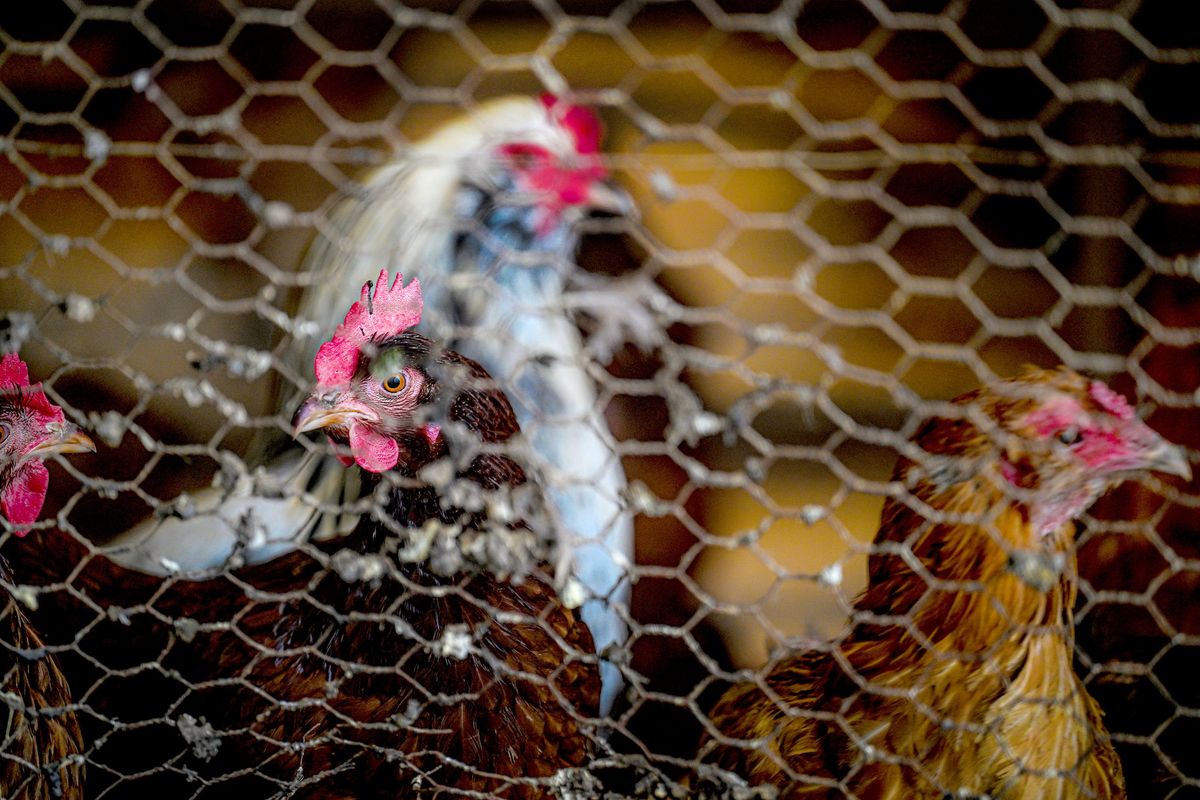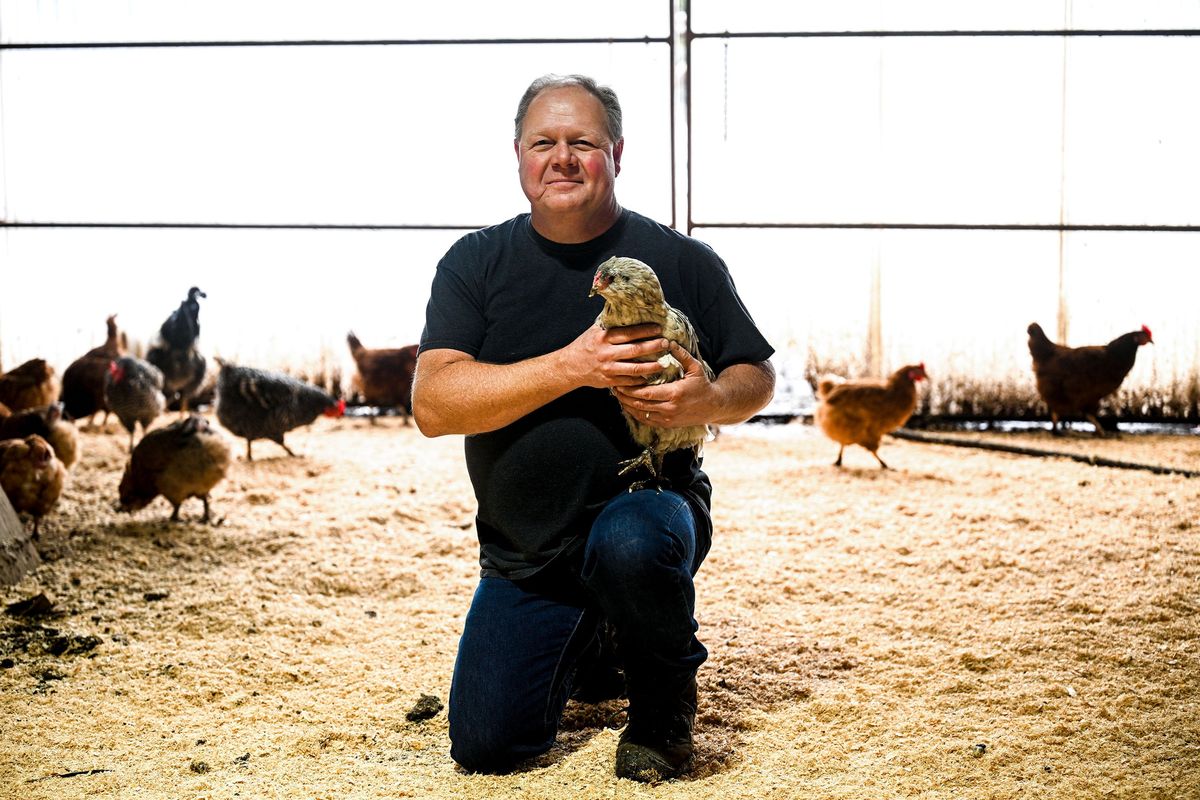Bird flu continues to egg up prices
Hens and roosters roam around Haggerty’s Happy Hens on Tuesday in Spangle. (Kathy Plonka/The Spokesman-Review)
The price of a dozen eggs, often considered a marker of inflation, continues to rise beyond the broader economic pressures that have spiked the cost of groceries.
The cheapest available dozen eggs at Fred Meyer in the East Central neighborhood were $6.99, earning comments from customers who passed the refrigerated section.
“Ridiculous,” said Olivia Lynch, a mother who said she is cutting back as it is no longer an affordable option to feed her family.
Cheaper options were listed on sale, but those shelves were empty.
Prices at Rosauers on 29th Avenue ranged from $3.89 to $7.39. A note taped to the shelf apologized for the supply shortage across the fresh egg market.
At Trader Joe’s across the street, a dozen grade A eggs cost $3.49.
Kristina King, bookkeeper for Terry’s Dairy, a Colville-based egg distributor for Eastern Washington and North Idaho, said prices began to rise at the beginning of last year when a new law went into effect requiring all eggs sold in Washington to be cage-free. Prices continued to rise because of avian influenza.
“The prices coming in are incredibly high,” King said.
King said it hasn’t been difficult to fill orders despite the shortage because there has been less demand from retailers.
“People don’t want to buy eggs as much with the increased cost,” King said.
The average U.S. city price for a dozen grade A eggs rose from $2.14 in November 2023 to $3.65 a year later, according to the Consumer Price Index.
In Seattle, prices are consistently upward of $6.99, the Seattle Times reported this week.
The average price in California is nearly $9, according to the U.S. Department of Agriculture’s weekly egg markets overview Jan. 3.
When bird flu is detected in a domestic flock, the entire flock must be slaughtered to prevent spread. These cullings reduce the supply of hens, which reduces the supply of eggs and drives up prices.
Since the current outbreak of H5N1 began in February 2022, over 130 million wild and domestic birds have been affected, according to the Centers for Disease Control and Prevention.
Haggerty’s Happy Hens, a family egg farm south of Spokane near Spangle, hasn’t been affected by the price crunches one way or another, owners Mike and Mary Haggerty said.
They raised their prices only once in over 10 years, in response to rising costs for feed during the COVID-19 pandemic.
“No need to, so why do that to our customers?” Mike Haggerty said.
Eggs from the farm’s 1,400 chickens are sold at local grocery stores, including Rocket Market, Rosauers, Super 1 and Eggers Better Meats. Their sales slow down in the winter as the chickens naturally produce fewer eggs while they molt.
Mary Haggerty said they are not worried about the bird flu because they have no open water on their property to attract wild waterfowl.
In addition to chickens, the Haggertys raise ducks for eggs, which they say are growing in popularity.
While the CDC says risk to humans remains low, the agency confirmed the first human death in the U.S. in Louisiana Monday. There have been 67 confirmed cases in humans since 2022, with 11 among Washington farm workers.
Importantly, no human-to-human transmissions have been identified, a CDC news release said.
An outbreak in October was found in an 800,000-chicken egg farm in Franklin County.
Smaller outbreaks have since been reported at backyard coops in Stevens and Okanogan counties.
Bird flu is also spreading among wild mammals. Two cougars in Clallam County on the north Olympic Peninsula were found dead last month after they were infected, according to the state Department of Fish and Wildlife.
Meanwhile, the disease killed another 20 big cats, including cougars at an animal sanctuary in Shelton, Washington, the Seattle Times reported.
A Department of Agriculture news release advised bird owners to protect their flocks by keeping them sheltered and restricting access to water sources where wild waterfowl gather and interact with domestic flocks. It is also a good idea to clean up any feed spills, limit visitors to the coop and refrain from sharing equipment with other flock owners.



